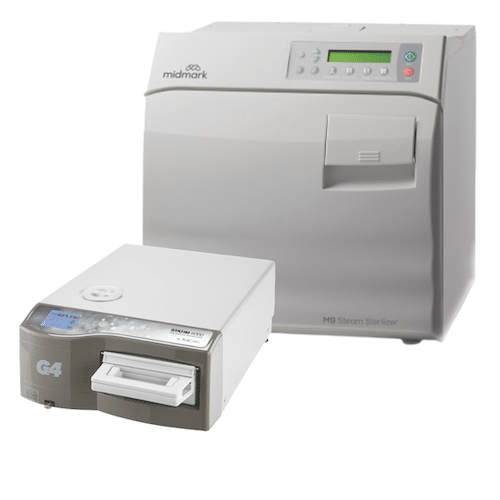Introduction to Autoclaves
Autoclaves are vital pieces of equipment used in various industries, especially in healthcare, laboratories, and dental practices. They sterilize tools and materials using high-pressure steam, effectively eliminating bacteria, viruses, and other harmful microorganisms. Given their critical role, ensuring that autoclaves are well-maintained and promptly repaired is essential for operational efficiency and safety.
The Importance of Autoclave Repair Services
Why Regular Repairs Are Necessary
Regular maintenance and timely repairs play a crucial role in the performance of autoclaves. Here are several reasons why they are essential:
- Effective Sterilization: Properly functioning autoclaves guarantee effective sterilization, which is vital for patient and staff safety.
- Minimized Downtime: Regular repairs help detect minor issues before they escalate into significant problems, reducing unexpected downtime.
- Cost Savings: Preventive maintenance can save on costly repairs and replacements, making it a cost-effective strategy in the long run.
Benefits of Professional Repair Services
Utilizing a professional autoclave repair service provides numerous advantages:
- Expertise: Trained technicians possess the knowledge and experience necessary to diagnose and fix issues efficiently.
- Quality Repairs: Professionals use high-quality parts and follow industry standards, ensuring that repairs are reliable and long-lasting.
- Compliance: Professional services ensure that all repairs meet health and safety regulations, reducing the risk of liability for your facility.
Common Autoclave Issues
1. Temperature Control Problems
Temperature is a critical factor in the sterilization process. Common temperature-related issues include:
- Heating Element Failures: If the heating element is not functioning properly, the autoclave may not reach the required temperature.
- Thermostat Malfunctions: A faulty thermostat can lead to temperature fluctuations, compromising the effectiveness of the sterilization cycle.
2. Pressure Issues
Proper pressure is essential for effective autoclaving. Common problems include:
- Malfunctioning Pressure Gauges: If the pressure gauge is broken, it may provide inaccurate readings, leading to sterilization failures.
- Seal Leaks: Worn or damaged seals can cause pressure loss, affecting the autoclave’s performance.
3. Water Supply Problems
Autoclaves require a consistent water supply to generate steam. Common issues can arise from:
- Clogged Water Lines: Mineral deposits can obstruct water lines, preventing the autoclave from operating effectively.
- Low Water Levels: Insufficient water can lead to overheating, which may damage the equipment.
4. Electrical Failures
Electrical issues can disrupt autoclave operations, including:
- Frequent Circuit Breaker Trips: This may indicate underlying electrical problems that require professional attention.
- Wiring Issues: Damaged or frayed wiring can lead to equipment malfunctions or short circuits.
How to Choose the Right Autoclave Repair Service
Key Factors to Consider
When selecting an autoclave repair service, keep the following factors in mind:
- Experience and Reputation: Look for companies with a proven track record in autoclave repairs. Customer reviews and testimonials can provide insight into their reliability.
- Certifications: Ensure that the technicians are certified and knowledgeable about the latest industry standards and best practices.
Range of Services Offered
Choose a repair service that offers comprehensive support, including:
- Routine Maintenance: Regular inspections and preventive maintenance can help extend the life of your autoclave.
- Emergency Repairs: Availability for urgent repairs is crucial in case of unexpected breakdowns.
The Autoclave Repair Process
Step 1: Initial Assessment
- Inspection: A qualified technician will conduct a thorough inspection of the autoclave to identify visible and hidden issues.
- Diagnostic Testing: Advanced tools and diagnostic techniques may be employed to pinpoint specific problems.
Step 2: Repairs and Replacements
- Parts Replacement: Any faulty components, such as heating elements or seals, will be replaced with high-quality parts.
- Calibration: After repairs, the autoclave will be calibrated to ensure accurate temperature and pressure settings.
Step 3: Final Testing
- Functionality Tests: The technician will run tests to confirm that the autoclave meets all operational standards.
- Documentation: A detailed report will be provided, outlining the repairs made and any recommendations for future maintenance.
Preventive Maintenance Tips
Schedule Regular Inspections
Plan for routine professional inspections to keep your autoclave in top condition. Aim for at least one comprehensive check-up each year.
Keep It Clean
Regular cleaning of both the interior and exterior can help prevent buildup that may lead to malfunctions. Follow the manufacturer’s guidelines for cleaning procedures.
Monitor Performance
Pay attention to the autoclave’s performance. If you notice any irregularities, such as unusual noises or failure to reach the required temperature, contact a repair service immediately.
Conclusion
Investing in a reliable autoclave repair service is essential for maintaining the efficiency and safety of your sterilization equipment. Regular maintenance and prompt repairs not only ensure compliance with health regulations but also prolong the lifespan of your autoclave. For expert assistance, consider reaching out to a specialized service provider like Hayes Handpiece Autoclave Repair Service.
FAQs
What are the common signs that my autoclave needs repair?
Common signs include failure to reach the required temperature, unusual noises during operation, and warning lights indicating malfunctions.
How often should I schedule maintenance for my autoclave?
It is generally recommended to have your autoclave serviced at least once a year, though more frequent checks may be necessary depending on usage.
Can I perform maintenance tasks myself?
While basic tasks such as cleaning can be performed by users, repairs should always be conducted by qualified professionals.
What is the typical turnaround time for autoclave repairs?
Turnaround times can vary based on the complexity of the issue, but many repairs can be completed within a few hours to a couple of days.
How can I prevent issues with my autoclave?
Regular maintenance, cleanliness, and vigilant monitoring of performance can significantly reduce the likelihood of malfunctions.
